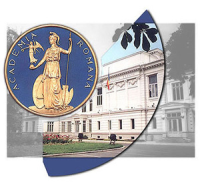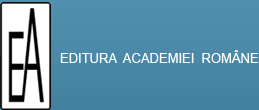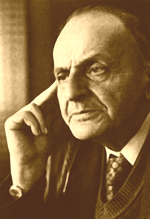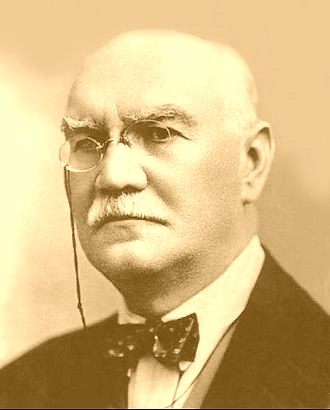Main Menu
DEPARTAMENTE
REVISTE
PUBLICAŢII PERIODICE
LEGĂTURI
CONFERINȚE
 Simpozionul Național Constantin Noica, Ediția a XVI-a „Povestiri despre om…” (26-29 septembrie 2024)
Simpozionul Național Constantin Noica, Ediția a XVI-a „Povestiri despre om…” (26-29 septembrie 2024)SIMPOZIONUL NAŢIONAL
SIMPOZIONUL NAŢIONAL
Welcome
Probleme de logică, vol. XXV, 2022
| PROBLEME DE LOGICĂ |
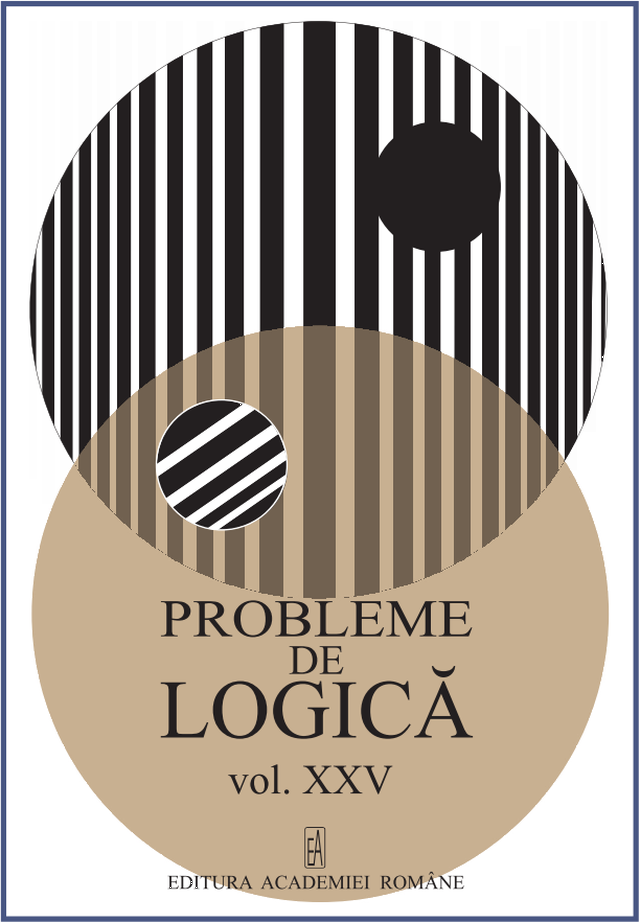 PROBLEME DE LOGICĂ, vol. XXV PROBLEME DE LOGICĂ, vol. XXVCoordonatori: Acad. Mircea Dumitru, Marius Dobre, Viorel Vizureanu, Ștefan-Dominic Georgescu Editura Academiei Române, Bucureşti, 2022 ISSN: 1454-2366 COPERTA C U P R I N S DESPRE LOGICA STIINTELOR EXACTE IN VIZIUNEA LUI PAUL NATORP IOAN BIRIŞ Universitatea de Vest din Timişoara PAUL NATORP ON THE LOGIC OF EXACT SCIENCES Abstract. The present study aims to highlight Paul Natorp's contribution to the development of transcendental logic within the Marburg School. As a very strict methodologist, Natorp supports the "logical turn" initiated by H. Cohen, but contradicts the logistic of the Frege-Russell line. For Natorp, science represents the first fact of knowledge, and the logic must be a logic of the exact sciences. Keywords: Marburg School; Natorp's logic; the logic of the exact sciences.  [Probleme de logică, vol. XXV, Editura Academiei Române, Bucureşti, 2022, pp. 7-14] [Probleme de logică, vol. XXV, Editura Academiei Române, Bucureşti, 2022, pp. 7-14] |
| LIMBAJUL BIBLIEI ŞI LOGICA FLOREA LUCACI Universitatea „Aurel Vlaicu”, Arad THE LANGUAGE OF THE BIBLE AND LOGIC Abstract. An open problem: If God is expressed through biblical language, then are the laws and rules of logical thinking still operational or not? If so, then to what extent can we speak of a certain similarity between divine and human thought? If not, then why is the divine message understood and assumed as a norm of life by the Cristian man? From the possibility of asking such questions, doesn’t the falsity of the absolutization of certain statements regarding the irrational character of the biblical narrative emerge? Isn’t it prejudice when you accept the so-called limits of human reason? Therefore, I consider that a research that confirms or refutes the presence of logical principles in the biblical text does not contribute to the desacralization of the Book, nor to labeling it as irrational. Keywords: logos, bible language, principles of logical thinking, reasoning, paradox.  [Probleme de logică, vol. XXV, Editura Academiei Române, Bucureşti, 2022, pp. 15-39] [Probleme de logică, vol. XXV, Editura Academiei Române, Bucureşti, 2022, pp. 15-39] |
| DESPRE ERORILE LUI RUSSELL ÎN PREZENTAREA FILOSOFIEI LUI HEGEL CLAUDIU BACIU Institutul de Filosofie şi Psihologie „Constantin Rădulescu-Motru” al Academiei Române ON RUSSELL’S MISUNDERSTANDING OF HEGEL Abstract. Russell's misunderstanding of Hegel's philosophy is based on his view that Hegel is a substantialist thinker. Russell's view that relations are real is well known, while he criticizes the traditional view according to which relations are unreal. At the same time, in this traditional view, only related things have reality or substance. Russell claims that Hegel's logic and metaphysics are based on this false assumption. The paper shows that, on the contrary, Hegel's approach cannot be understood if we assume that he is a substantialist thinker, but only if we assume that Hegel set the importance of relation (i.e., the concept of the human thought) before that of essences and substance. Keywords: Transcendental logic, Kant, metaphysics, freedom, history, state.  [Probleme de logică, vol. XXV, Editura Academiei Române, Bucureşti, 2022, pp. 41-52] [Probleme de logică, vol. XXV, Editura Academiei Române, Bucureşti, 2022, pp. 41-52] |
| LOGICISM ŞI ANALIZĂ LOGICĂ ÎN FILOSOFIA TIMPURIE A LUI RUSSELL CONSTANTIN STOENESCU Universitatea din Bucureşti, Facultatea de Filosofie LOGICISM AND LOGICAL ANALYSIS IN RUSSELL’S EARLY PHILOSOPHY Abstract. It is admitted that Russell proposed in „On Denoting”, as Ramsey pointed out, a new paradigm of philosophical analysis in the sense that through analysis we reveal beyond the superficial linguistic layer a deep logical structure. The purpose of the research is to identify the methodological commitments assumed somewhat explicitly by Russell prior to „On Denoting”, especially in The Principles of Mathematics. Although we can still notice reminiscent of a Hegelian language, Russell discusses the conceptual analysis of so-called constitutive parts and the relationship between the part and the whole as an organic unit, thus placing himself on a common platform with Moore, who had already configured the requirements of the decompositional analysis. Russell thus outlines a logicist project in which we find a lot of ingredients, from breaking with the Kantian theory of a priori intuitions to a theory of internal relations. As a result, philosophical analysis is seen from a pluralistic methodological perspective. Keywords: Russell, Kant, foundations of geometry, a priori intuitions, logical analysis, logicism, decompositional analysis, internal relations.  [Probleme de logică, vol. XXV, Editura Academiei Române, Bucureşti, 2022, pp. 53-70] [Probleme de logică, vol. XXV, Editura Academiei Române, Bucureşti, 2022, pp. 53-70] |
| IONEL NARIŢA Universitatea de Vest din Timişoara ELEMENTS OF DOXASTIC LOGIC Abstract. The doxastic logic is the logic of believing propositions, with the syntax „X believes that p”. Doxastic logic can be built only using the principle of doxastic freedom, otherwise, it would fall into paradox. In order to grasp all possible doxastic states, a single operator, like B, is not enough; some doxastic propositions would remain impossible to be formalized. Moreover, this paper develops a logic of operational values and of doxastic imperatives. Also, there are outlined some issues concerning the relationship between introspection and doxastic states. Keywords: beliefs, operational values, introspection, doxastic voluntarism.  [Probleme de logică, vol. XXV, Editura Academiei Române, Bucureşti, 2022, pp. 71-84] [Probleme de logică, vol. XXV, Editura Academiei Române, Bucureşti, 2022, pp. 71-84] |
| RECONSTRUCŢIA LOGICII CLASICE LA ALEXANDRU SURDU (II). TEORIA NOŢIUNII (I) ŞERBAN N. NICOLAU Institutul de Filosofie și Psihologie „Constantin Rădulescu-Motru” al Academiei Române ALEXANDRU SURDU’S RECONSTRUCTION OF CLASSICAL LOGIC (II). THE THEORY OF NOTION (I) Abstract. The paper deals with Alexandru Surdu’s reconstructionof the theory of notion as an Aristotelian type theory, according to the theory of syllogism and general principles of Aristotelian philosophy and logic and, at the same time, according to the principles of a complete classical-traditional logic. The reconstruction starts from the treaties of the Corpus Aristotelicum and the commentaries of ancient Greek interpreters. Keywords: classic logical form, notion, mental determination, subjective-rational determination, formal principle, definition.  [Probleme de logică, vol. XXV, Editura Academiei Române, Bucureşti, 2022, pp. 85-96] [Probleme de logică, vol. XXV, Editura Academiei Române, Bucureşti, 2022, pp. 85-96] |
| EXPANSIUNEA LOGICĂ. MOMENTUL LOGIC ORIGINAR AL GÂNDIRII (V) CEZAR ROŞU LOGICAL EXPANSION. THE INITIAL LOGICAL MOMENT OF THOUGHT (V) Abstract. As thought cannot know the totality of a real’s manifestations, it cannot identify absolute affirmations within the world of the relative real, therefore the searched necessity could not be found either in the group of quantity, or in the group of quality. This is because both the categories of quantity, and those of quality that represent syntheses of the homogenous do not contain the attribute of necessity (its elements do not necessary belong to one another).The synthesis of the heterogenous, which we meet only in the relation’s group and to which one applies the dynamic principles (the diverse is a priori presented as bound), is the synthesis of necessary connection and contains the attribute of necessity. Maybe we will meet, in this group, necessity. Keywords: the affirmative, the negative, the reality of the negative, the limitation that limits, the limitation that does not limit, the sythesis of the homogenous, the synthesis of the heterogenous, Gaussian bell.  [Probleme de logică, vol. XXV, Editura Academiei Române, Bucureşti, 2022, pp. 97-102] [Probleme de logică, vol. XXV, Editura Academiei Române, Bucureşti, 2022, pp. 97-102] |
| ASPECTE LOGICE CATEGORIALE ALE IDEII DE SISTEM ÎN FILOSOFIA ROMÂNEASCĂ ŞTEFAN-DOMINIC GEORGESCU Institutul de Filosofie şi Psihologie „Constantin Rădulescu-Motru” al Academiei Române Academia de Studii Economice din Bucureşti LOGICAL CATEGORIAL ASPECTS OF THE IDEEA OF SYSTEM IN ROMANIAN PHILOSOPHY Abstract. The paper sketches a general framework of Romanian systematic philosophy, focusing on the existing types of philosophizing in a systematic manner. The main point is that a contextual philosophy (restricted to a certain historical evolution, to a certain geographical area, and to a language) must rely upon a starting point, provided by a certain philosophical perspective. As for the identity of such a philosophy, with respect to Romanian philosophy, one needs to adapt the systematic-categorial way and to apply it to the historical evolution of philosophy (in this case, to Romanian philosophy). The paper also attempts to check whether there is a unity of Romanian systematic philosophy given by some main traits of particular philosophical systems. The main pont is that deduction of categories, method, moments of system, and completness could offer some elements of this national philosophy, together with the search for an integral table of categories, which could bring about the unquestioned legitimacy of using the expression „Romanian philosophy”. Keywords: contextual philosophy, Romanian philosophy, deduction of categories, systematic philosophy, completness, speculative.  [Probleme de logică, vol. XXV, Editura Academiei Române, Bucureşti, 2022, pp. 119-136] [Probleme de logică, vol. XXV, Editura Academiei Române, Bucureşti, 2022, pp. 119-136] |
| NON-CATEGORICITATEA LOGICII (I). PROBLEMA UNEI FORMALIZĂRI COMPLETE CONSTANTIN C. BRINCUŞ Institutul de Filosofie şi Psihologie „Constantin Rădulescu-Motru al Academiei Române THE NON-CATEGORICITY OF LOGIC (I). THE PROBLEM OF A FULL FORMALIZATION Abstract. A system of logic usually comprises a language for which a model-theory and a proof-theory are defined. The model-theory defines the semantic notion of model-theoretic logical consequence (⊨), while the proof-theory defines the prooftheoretic notion of logical consequence (or logical derivability, ⊢). If the system in question is sound and complete, then the two notions of logical consequence are extensionally equivalent. The concept of full formalization is a more restrictive one and requires in addition the preservation of the standard meanings of the logical terms in all the admissible interpretations of the logical calculus, as it is proof-theoretically defined. Although classical first-order logic is sound and complete, its standard formalizations fall short to be full formalizations since they allow non-intended interpretations. This fact poses a challenge for the logical inferentialism program, whose main tenet is that the meanings of the logical terms are uniquely determined by the formal axioms or rules of inference that govern their use in a logical calculus, i.e., logical inferentialism requires a categorical calculus. This paper is the first part of a more elaborated study which will analyze the categoricity problem from its beginning until the most recent approaches. I will first start by describing the problem of a full formalization in the general framework in which Carnap (1934/1937, 1943) formulated it for classical logic. Then, in sections IV and V, I shall discuss the way in which the mathematicians B.A. Bernstein (1932) and E.V. Huntington (1933) have previously formulated and analyzed it in algebraic terms for propositional logic and, finally, I shall discuss some critical reactions Nagel (1943), Hempel (1943), Fitch (1944), and Church (1944) formulated to these approaches. Keywords: categoricity, non-intended models, full formalization, inferentialism.  [Probleme de logică, vol. XXV, Editura Academiei Române, Bucureşti, 2022, pp. 137-156] [Probleme de logică, vol. XXV, Editura Academiei Române, Bucureşti, 2022, pp. 137-156] |
| DIAGRAME EULER, SINCRONIE, DIACRONIE, EVENIMENT GABRIEL ILIESCU Universitatea „Spiru Haret” EULER DIAGRAMS, SYNCHRONY, DIACHRONY, EVENT Abstract. The hypothesis of the article is that Euler diagrams can be placed into diachronic context. They are currently used in synchronic context. Euler diagrams are extensional relationship between two terms either A and B. The tacit assumption is that term extensions are fixed, to not change over the time and they are synchronically present in language. The diachronic context means that the same extensional relations occur between two temporal moments of the extension of the same term At1 şi At2. To each Eulerian relation corresponds four empty/non-empty set intersections between At1 and At2. To each intersection corresponds: an empty/non-empty set of individuals; a belongness event traveled/not-travelled by the individuals of the extension, from t1 to t2; an empty/non-empty set of individuals, derived from the event; a group of nine sentences expressing the order relationship between the mentioned sets. The logical value configuration of these sets is unique. Therefore to each Eulerian relation corresponds thirty-six sentences about the order relationship between the mentioned sets. These ones compose configurations of values specific to each Eulerian relation. The result is the highlighting of the specificity of each Eulerian relation and of the differences between the five Eulerian relations in a diachronic context. The key idea of the article is to unify the Euler diagrams, in diachronic version, with the event in its wrightean sense. Keywords: Euler diagrams, extensional relationship, synchronic context, diachronic context, intersection, belongness, event, set of individuals going through an event.  [Probleme de logică, vol. XXV, Editura Academiei Române, Bucureşti, 2022, pp. 157-172] [Probleme de logică, vol. XXV, Editura Academiei Române, Bucureşti, 2022, pp. 157-172] |
| PROBLEME ŞI CONCEPTE ÎN LOGICA INFORMALĂ MARIUS DOBRE Institutul de Filosofie şi Psihologie „Constantin Rădulescu-Motru al Academiei Române PROBLEMS AND CONCEPTS IN INFORMAL LOGIC Abstract. In this study, I firstly present a brief history of informal logic, then the reasons that led to its separation from formal deductive logic (FDL). Next, I discuss in more detail the problems and the concepts that give the specificity of informal logic, the main „reforms” brought by the „new wave” in logic, the new approach in the study of argument and argumentation, the framework in which argumentation in dialogue is carried out, the special treatment of fallacious arguments and I emphasize the practicality that informal logic imprints on all these problems. Keywords: informal logic, formal deductive logic, argument, argumentation, critical discussion, fallacy.  [Probleme de logică, vol. XXV, Editura Academiei Române, Bucureşti, 2022, pp. 173-193] [Probleme de logică, vol. XXV, Editura Academiei Române, Bucureşti, 2022, pp. 173-193] |
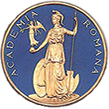

 P S I H O L O G I E
P S I H O L O G I E